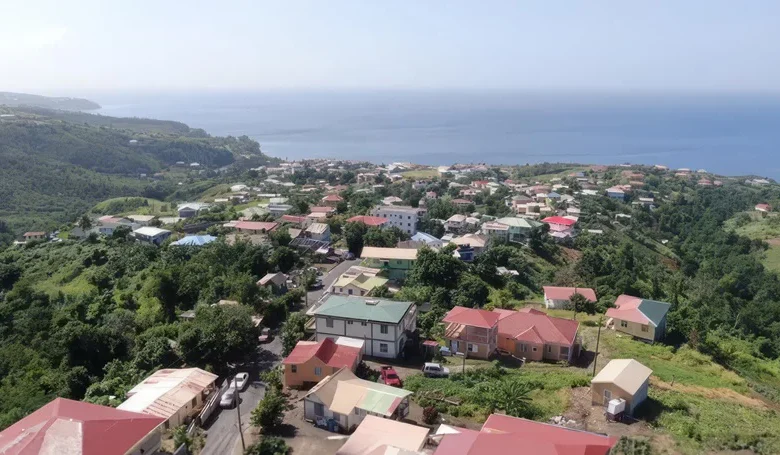Salisbury

Salisbury is a picturesque village located on Dominica’s west coast in Saint Joseph Parish, nestled between the communities of Mero to the south and Morne Rachette to the north. Also known as Barroui by the indigenous people of Dominica, the Kalinago, Salisbury, is rich in cultural heritage, natural beauty, and community spirit. The village’s unique blend of history and culture makes it a significant part of the island’s diverse landscape.
The Village of Salisbury: Our History
Salisbury, originally called Barroui by the Kalinago, has a history that reflects the blend of cultures over centuries. The Kalinago were the first inhabitants, settling around 1000 AD, utilizing the fertile lands and abundant marine resources. The name Barroui signifies the area’s importance to the Kalinago, who established communities along the coast.
In the 18th century, during British colonial rule after the Treaty of Paris in 1763, the village was renamed Salisbury, likely after the city in England. It became part of Saint Joseph Parish and developed as an agricultural hub. Plantations were established, cultivating crops like sugarcane, coffee, and later bananas and coconuts. Enslaved Africans were brought to work on these plantations, and their descendants form a significant part of the village’s population today.
Following the abolition of slavery in 1834, many freed individuals remained in the area, working as labourers or establishing small farms. The village grew steadily, with improvements in infrastructure, such as roads connecting Salisbury to other parts of the island. The Edward Oliver Leblanc Highway, formerly the West Coast Road, became a vital artery for trade and communication, linking Salisbury to the capital city, Roseau, approximately 12 miles to the south.
Geography and Natural Features
Situated along Dominica’s west coast, Salisbury boasts breathtaking views of the Caribbean Sea. The village is bordered by lush hills to the east and the sea to the west, creating a biodiversity-rich landscape. The Salisbury River flows through the village, providing fresh water and contributing to the area’s lush environment.
One of the village’s main attractions is the beautiful Salisbury Beach, known for its distinctive black sand resulting from the island’s volcanic origins. The beach is a popular spot for swimming, fishing, and community gatherings, playing a central role in village life. Its calm waters and scenic views make it a favourite destination for locals and visitors.
The region around Salisbury boasts a rich array of plant and animal life. The tropical climate and fertile volcanic soil support fruit trees such as mango, avocado, breadfruit, and citrus. Crops like bananas, plantains, and root crops are extensively cultivated, reflecting the village’s agricultural heritage. The forests near Salisbury are habitats for numerous wildlife and endemic species. Bird enthusiasts can spot Dominica’s endangered and protected endemic birds, the Sisserou Parrot and Jaco Parrot. The area is also home to mammals like Agoutis and Manicous and reptiles such as iguanas and lizards.
Community and Culture
Salisbury is characterized by a strong sense of community and cultural traditions that reflect its historical roots. The village has several vital facilities that serve the community:
- The Salisbury Primary School provides foundational education for the village’s children, fostering academic growth and community involvement.
- The Salisbury Health Centre offers basic medical care and health education, ensuring the well-being of residents.
- The Salisbury Police Station ensures law enforcement and safety, contributing to the village’s secure environment.
- The Salisbury Catholic Church is a spiritual centre integral to community gatherings, hosting events like weddings, baptisms, and religious festivals.
- The West Coast Co-operative Credit Union Ltd provides financial services to residents, supporting local businesses and personal financial management.
- The Salisbury Playing Field is a hub for sports and recreation maintained by the Salisbury Sports Committee. It hosts football matches, athletic events, and cultural activities.
- The Salisbury Village Council manages local affairs, infrastructure maintenance, and community projects, playing a vital role in the village’s development.
The village celebrates the Feast of St. Theresa, honouring the patron saint of the Salisbury Catholic Church. This event features religious ceremonies, music, dance, and communal feasting. Salisbury also participates in national celebrations like Independence Day and Carnival, showcasing local music genres like calypso and bouyon, and traditional folk dances. These events strengthen community bonds and preserve cultural heritage.
Notable Personalities
Salisbury is the hometown of several influential figures who have contributed to the nation’s development:
- Parry Bellot, a respected economist and advisor, has played a significant role in national economic planning and policy.
- Edward Registe, a politician and community leader, worked towards social development in the area, advocating for education and community empowerment.
Infrastructure and Development
Agriculture remains a cornerstone of Salisbury’s economy. While banana production was historically significant, diversification into other crops and agro-processing has become crucial due to global market changes. Fishing contributes to the local economy, with fishermen supplying fresh seafood to markets.
Infrastructure projects have enhanced living standards, improving electricity, water supply, and telecommunications. The Edward Oliver Leblanc Highway is vital in transportation and economic activities, connecting Salisbury to other critical areas on the island.
The Salisbury Village Council and community groups undertake projects to improve facilities like community centres, sports fields, and public spaces. These projects often involve partnerships with government agencies and non-governmental organizations and focus on education, health, and environmental sustainability.
Natural Attractions and Conservation
Although Salisbury doesn’t have designated national parks within its immediate vicinity, it is close to several natural attractions that promote environmental conservation and eco-tourism.
The Syndicate Nature Trail, accessible from Salisbury, provides opportunities for bird watching and experiencing the island’s rich biodiversity. Environmental organizations and the government collaborate on initiatives like reforestation and sustainable agriculture to preserve the natural environment around Salisbury.
Impact of the Village of Salisbury
The community’s commitment to preserving its cultural heritage while embracing development has made Salisbury a vibrant and welcoming place. The integration of traditional practices with modern advancements reflects the resilience and adaptability of its people.




